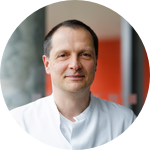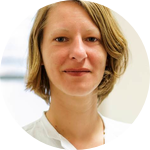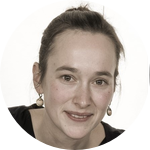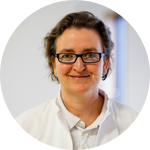About This Project
Placentophagy is gaining in popularity as supporters of this behavior claim it has the ability to improve lactation, mood, recovery and engery level in childbirth. The placenta is often assumed to be sterile, but we now know that placentas have their own microbiome. This study aims to analyze the bacterial composition of processed placenta samples with attention on Group-B-Streptococci to understand potential bacterial infection associated with placentophagy.
Ask the Scientists
Join The DiscussionWhat is the context of this research?
Placentophagy is gaining popularity among postpartum women of industrialized societies. The possible risks and benefits of placenta consumption have been investigated in recent studies (Young et al. 2017a, Gryder et al. 2017a, Young et al. 2017b, Gryder et al. 2017b).
It is assumed that the fetus is inoculated with the maternal microbiome during pregnancy.
One single case published by the CDC describes a possible Group B streptococci infection oft the newborn after maternal placenta ingestion (Buser et al. 2017).
Does the vaginal colonization with Group B streptococci has an impact on bacterial composition of the placenta? More studies have to investigate the composition of microorganisms in the placenta and other niches of the human organism.
What is the significance of this project?
Contrary to traditional assumption, latest publications show that placental tissue is not sterile but shows various physiologic and microbial communities. A publication by Aagaard et al. discussed changes of the vaginal microbiom during pregnancy and found that the overall diversity and richness of microbial species is reduced compared to non-pregnant women. Group B Streptococci belong to the physiologic human vaginal flora and are detected in 25% of pregnant women.
What are the goals of the project?
What is the microbial composition of raw and processed placental tissue? Is placenta ingestion a risk for transmission of infections from the mother towards the newborn? We collect placentas from spontaneous and cesarean birth at the department of obstetrics at the Jena University hospital. Tissue samples from processed placenta are analyzed for microbial composition. With this data the occurrence of GBS colonization of placental tissue and the use of antibiotics in the peripartal phase will be discussed.
Budget
There is a close cooperation of the placenta lab and the department of medical microbiology. The funding is used only for material expenses (sensitive molecular biologic tests for selected bacteria strains).
Endorsed by
 Project Timeline
Project Timeline
The GBS project will start in June 2018. The collection of donated placentas for our project will take 3-6 months, depending on the birth rate.
Jun 02, 2018
Project Launched
Jul 01, 2018
Start placenta collection for GBS-Project
Meet the Team
Affiliates
Affiliates
Team Bio
The team of this project consists of specialists in obstetrics and placenta research. We are experienced in collaborating in research projects and eager to investigate placentophagy in more detail. Besides that, we are all mothers (of 11 kids total) and do understand women and their needs in childbed. Our aim is to improve postpartum treatment and recovery.
Sophia Johnson
In 2012 I graduated at the private University of Witten/Herdecke. In addition to my general medical studies, I attended courses in Anthroposophical Medicine, Phytotherapy and Traditional Chinese Medicine. As my interest in alternative medicine is broad, I am eager to include it into my scientific studies.
https://www.linkedin.com/in/dr-sophia-k-johnson-a83705b6/
https://www.instagram.com/placenta.universe/
Jana Pastuschek
Leiterin AG Plazenta-Perfusion
Jana.Pastuschek@med.uni-jena.de
Telefon: +49 3641 9-390852
Fax: +49 3641 9-390857
Anne Möller
I am a highly motivated PhD student at Friedrich Schiller University Jena. On first hearing about the fascinating Placenta-Project, I was very keen to know more. There is much still to learn and further research will enable us to discover many details such as the transmission of bacteria.
Tanja Groten
As a Basic Researcher as well as a wholeheartedly clinical obstetrician I am studying the placenta for more than 20 years now and it is still one of the most exciting, fascinating and mysterious human organs.
Fachärztin für Gynäkologie und Geburtshilfe, Spezielle Geburtshilfe und Perinatalmedizin, Leiterin klinische Prüfung PETN-Studie und AG-Leiterin Endothel, Geschäftsführende Oberärztin Klinik für Geburtsmedizin, Leitung Kompetenzzentrum Diabetes und Schwangerschaft
Additional Information
Buser GL, Mato S, Zhang AY, Metcalf B, Beall B, Thomas AR. 2017. Late-Onset Infant Group B Streptococcus Infection Associated with Maternal Consumption of Capsules Containing Dehydrated Placenta - Oregon, 2016. Mmwr-Morbidity and Mortality Weekly Report, 66 (25):677-678.
Gryder LK, Young SM, Zava D, Norris W, Cross CL, Benyshek DC. 2017a. Effects of Human Maternal Placentophagy on Maternal Postpartum Iron Status: A Randomized, Double-Blind, Placebo-Controlled Pilot Study. J Midwifery Womens Health, 62 (1):68-79.
Gryder LK, Young SM, Zava D, Norris W, Cross CL, Benyshek DC. 2017b. Effects of Human Maternal Placentophagy on Maternal Postpartum Iron Status: A Randomized, Double-Blind, Placebo-Controlled Pilot Study. Journal of Midwifery & Womens Health, 62 (1):68-79.
Young SM, Gryder LK, Cross C, Zava D, Kimball DW, Benyshek DC. 2017a. Effects of placentophagy on maternal salivary hormones: A pilot trial, part 1. Women Birth.
Young SM, Gryder LK, Cross C, Zava D, Kimball DW, Benyshek DC. 2017b. Placentophagy's effects on mood, bonding, and fatigue: A pilot trial, part 2. Women Birth.
Project Backers
- 55Backers
- 104%Funded
- $4,723Total Donations
- $85.87Average Donation




